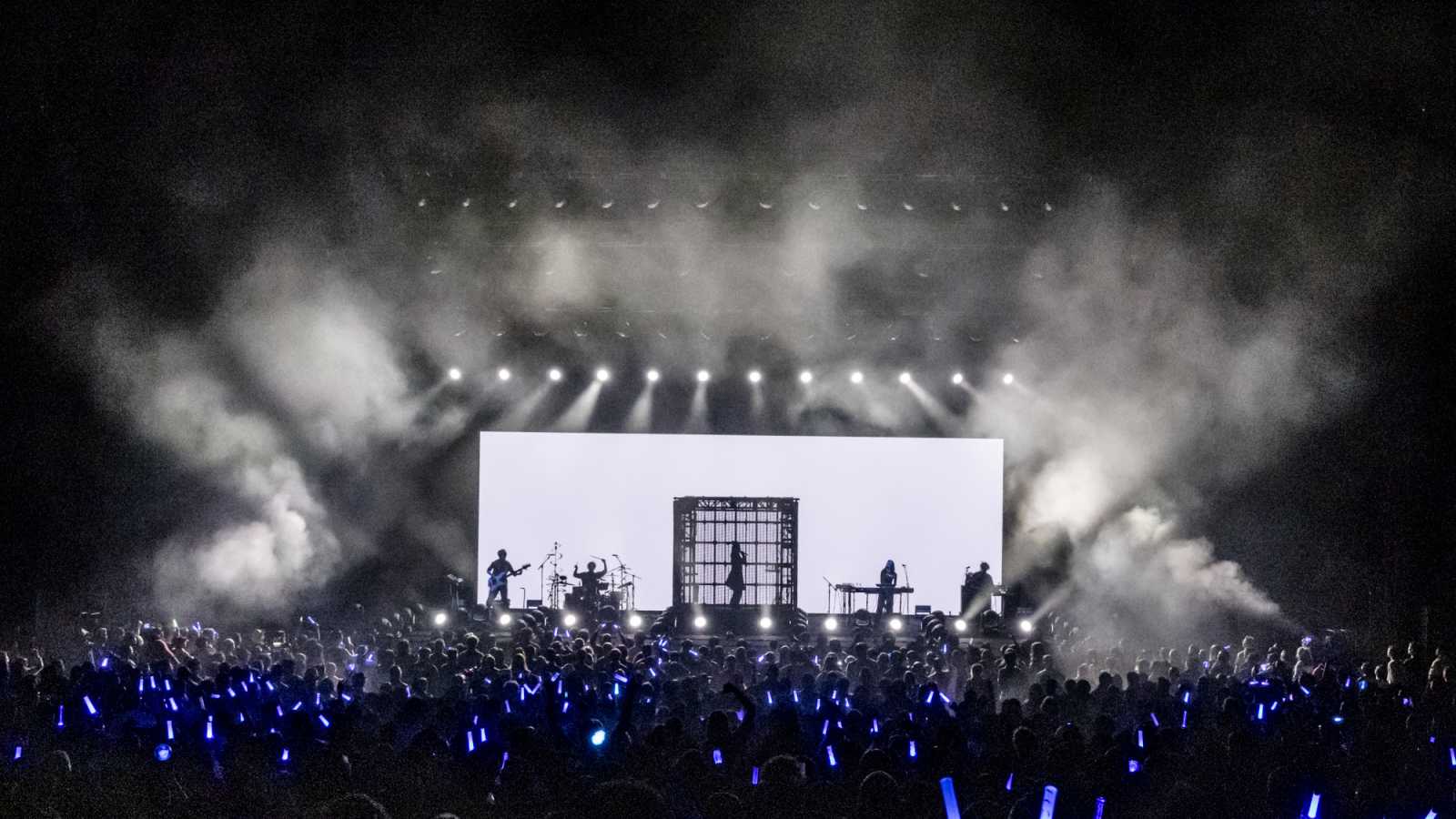A delightful compilation of classic sounds and modern style by Tokyo No Records.
The Time Was Then Is Now is a compilation released by American label Tokyo No Records. The album celebrates the rock'n'roll scene of mid-century Japan, with seven throwback bands contributing one cover song of a classic, and one original track; in addition, there are two bonus tracks from the artists 50 Kaitenz and Mayuko Sakai.
The disc opens with what appears to be the label's flagship artist, The Captains. Their first track is a cover of the 1967 hit by The Carnabeats, Koi wo Shiyo yo Jenny, known in America simply as Jenny. The track feels very period authentic, with retro guitars and dynamic backing vocals; the song ends with a romantic shouting sequence. The second track contributed by the band is the original track Cassiopeia, a track from their 2007 album A Cage of Roses. The song is a groovy tune played on acoustic guitar, with a swing-style bass tagging along.
The second featured artist is an all-girl-group, Kinoko Hotel. They draw their heaviest influence from the mid-60's to mid-70's era of rock. Appropriately, their cover song is the Hatsumi Shibata track Koi no Touch & Go. Recording on the track sounds very vintage, and the scaling guitars have a nice surf-rock feel with some solid solos. They also provide a consistent harmony with the vocalist, Marianne Shinonome. Their second contribution is the original track Shizuka na Mori de ~ Kinoco Hotel Shouka. The song is a B-side from their debut single Makka na Jelly, and is described as being "arranged like potpourri." The song incorporates a retro sound with a slow, contemporary garage-rock feel.
The Syrup is the next band. Led by Gel Matsuishi, a musician and producer from Nagoya, The Syrup covers a song by the famous 60's Group Sounds band, The Spiders. Ban Ban Ban is a quiet, quick, jazzy tune, with guest French yé-yé singer France Gal singing the vocals. Her singing style blends perfectly with the smooth, scaling bassline and soft, sensual saxophone. The atmosphere created by Ban Ban Ban really puts the listener in a 1960's mood, and this is continued by their original track Ai no Kotou (Loves Solitary Island), from The Syrup's 2000 debut album The Syrup's World. However, it appears in a remixed form for this disc. The song again features smooth female vocals and soft instrumentation led by simple drum rhythm and a jazzy bassline.
Next up are The Psycrons, a psychedelic rock'n'roll trio hailing from Kyoto. They open with a cover of the Group Sounds band Jackie Yoshikawa and Blue Comets, with the 1968 song Psychedelic Man. This track is of a slightly more aggressive style than the prior tracks, but fits in well, with loud distorted guitar riffs and an entrancing male vocal track. The drums pound in the background, while the guitars lead into a fresh, upbeat bridge. The song pulls out on a decrescendo in volume, entering into their original track, My Amy. The singer professes his love for his "Amy" like a true rock'n'roll romancer, which would fit right into American 50's pop culture. This track is sure to leave you longing for your own "Amy."
Another emerging band in America take up the ninth and tenth track: Thee 50's High Teens. The heavily-thematic vampire girl-group present a cover of an old commercial tune for Renown, a clothing label, called Renown Wansaka Musume. The rough, grungy vocals complement the distorted guitar and create a fun, groovy track. Their original song featured on the album is Love Me Tonight, from their 2005 album Punch De Beat. The song is sharp and acidic, with loud guitars and crazy female singing.
Following the in-your-face thematic band is a more subtle group, Salome no Kutibiru. The septet performs "retro ballads" and creates very full, well-composed tunes, driven by the lead-composer and bassist Satoshi Mizuno, and the suave vocalist Kyoko Tachibana. Their cover track is a rearrangement of a Sergio Mendes song, now titled Kokiriko Bushi. The dynamics are strong, incorporating the typical drums, guitar, and bass, but also utilizing the group's flautist. The song is very smooth, another jazzy track, and the smooth, seductive singing is captivating. Any rock'n'roll aficionado would be left drooling over the intelligent song structures that hold up a thick, cool atmosphere. Their original track is a bit more rocky. Yoake ni Kieru, from their first album In the Beautiful World, is a song with a prominent bass and flute. This song, like the last, has beautiful composition, with every facet of musicality harmonizing. This band's tracks would stick out as much in the middle of the century as they do now, for their sheer impressiveness.
The last featured artist is Jun Tabuchi, who has a rich story of joining his childhood favorite band in the "Mood Kayou" scene. "Mood Kayou" is a mixture of Hawaiian and Japanese styles, and in 2004 Tabuchi had the opportunity to replace his deceased idol, Hiroshi Wada, in his own band. Jun's cover song is Karappo no Sekai (Empty World) by the acid-rock group, Jacks. His deep, soulful voice suits the mellow track well, which defies genre and creates a psychedelic, acidic atmosphere, with a tortoise-paced jazz bass-line. The mixture of rock and psychedelia is hypnotic for its entire four-and-a-half-minute duration. Karappo no Sekai ends with a flute solo, and then we are introduced to Tabuchi's own Yoru o Makimodose. The song is from Tabuchi's debut solo single. The track is deep and romantic, with a spicy blend of rock, jazz and Spanish sound. It leaves everyone with an urge to get up and dance.
The two bonus tracks on the album come from the Ramones-influenced, Osaka-based group 50 Kaitenz and the female rock singer Mayuko Sakai. The former delivers a loud, punk cover track, Amegari no Yozora ni, originally by the famous band RC Succession. The latter presents a soft, vocal-centered ballad entitled Kaze o Atsumete, which was originally by Happy End. Both of these tracks are best experienced by ones own listening, as they condense the dynamics of the entire album into two stark, contrasting tracks.
Tokyo No Records has delivered a strong compilation, bringing the past to the present and vice-versa. For anyone looking to expand outside of the typical modern rock scene, this is a must-have album.



